What is the best way to be supportive of your friend during miscarriage? Many people wonder how to support someone after miscarriage, which is why we have so many resources on this subject. We’ve covered miscarriage support before, providing specific, actionable tips for helping a friend through a miscarriage. We also have a great article on choosing the most healing gifts for miscarriage. Here, we’ll focus on one specific tip, as it’s truly the #1 thing you can do to to help support someone after a miscarriage: validate their grief.
What do I mean when I say that you should validate a miscarriage survivor’s grief? A few things.
- Acknowledge their loss. Tell them you’re sorry, you’re here for them, you know this is hard.
- Help them understand that their feelings matter. They didn’t just lose the hope from however many weeks they knew they were pregnant. They lost an entire life they’d envisioned, and they have every right to grieve.
- Do not, I beg of you, I plead with you, use the words “at least.”
We often don’t know what to say when trying to navigating helping a friend through a miscarriage. Sadly, this often leads us to say things that are hurtful, not helpful. Click here to learn what not to say to someone who had a miscarriage.

This site contains affiliate links, meaning that we earn a small commission for purchases made through our site. We only recommend products we personally use, love, or have thoroughly vetted.
- Why Validating Grief Is Hard
- Why Validation Is The Best Way to Support Someone After Miscarriage
- How Do I Validate Grief?
- Helping a Friend through Miscarriage with Validation and Affirmation
- Confronting Discomfort = Miscarriage Support
- My Pregnant Friend Was Supporting Me Through Recurrent Miscarriage
- What Validating Grief Looks Like
- Validation = Support Through Miscarriage
- Acknowledging that Miscarrying Mothers are Still Mothers
- The Healing Power of Validation
Why Validating Grief Is Hard
Validating someone’s feelings is hard. It goes against all of our natural urges.
Why?
Because we want to make things better, and saying “It’s completely tragic and unfair that you have to go through this. I’m so sorry,” doesn’t offer a solution.
We want to offer solutions when helping a friend through a miscarriage, or any struggle, really.
So instead, we minimize the experience by trying to find a bright side. Let’s learn to do better. Learn what not to say after someone has a miscarriage, and what not to do.
Validation is hard because it requires us to sit with the discomfort. It doesn’t try to solve problems or salve wounds. Validation merely recognizes the presence of the wound, understands that it was painfully acquired, and allows it time to heal.
Why Validation Is The Best Way to Support Someone After Miscarriage
Janet Boxx, loss mom, blogger, and contributor at The Mighty, explains this far better than I can:
Validation is the antibiotic ointment applied to promote healing. The presence of ‘safe friends’ (those who don’t criticize or try to fix the broken) is the packing and covering which provides a barrier between the open wound and the influences of the outside world. Frequent validation and affirmation keep the emotional wound clean, providing an environment that encourages healing (emphasis mine).
Janet Boxx
When helping a friend through a miscarriage, your goal is to help them heal. So many influences from the outside world tell them that their grief is “less than.”
“At least you weren’t further along.” “At least you got to hear a heartbeat.” “At least it wasn’t worse.”
Such sayings, to continue Boxx’s metaphor, put bacteria in the wound. They make it worse. They reopen it so it’s harder to heal.
So if you’re wondering how to support someone after a miscarriage, you want to provide the salve that lets them heal. Validation is that salve.
How Do I Validate Grief?
Sit with them. Sit with situation without trying to make it better. Yes, I know it’s hard. That’s the point. Your friend is going through something hard. Walk through it with them.
Validating grief requires openly recognizing terrible experiences and allowing space for mourning.
It means having conversations and cry sessions that might make you uncomfortable.
And it’s worth it.
It’s how you support someone through a miscarriage. Or stillbirth, or infant loss, or child loss, or the loss of a parent, or a job, or any other type of grief.
Validating Words
So many of us just cannot stand silence. If you’re one of those people, I get it. You need words. Here’s a short list of words that validate miscarriage grief.
- “I love you”
- “I’m here for you”
- “This sucks/is unfair”
- “I’m sorry for your loss.”
Unless the friend you’re learning how to support after a miscarriage specifically indicates they’re ready to look for silver linings, don’t try to make it better.
It’s hard, but you can do it.
Validating Gifts
When you’re helping a friend through a miscarriage, gifts aren’t necessary. But they do show love and support, especially if you can’t do as much as you’d like to help (showing up, cooking dinner, cleaning the house, etc.)
We have an article about the most healing gifts for miscarriage, but what I want to focus on here are gifts that actually validate grief. I’ll just give a few examples.
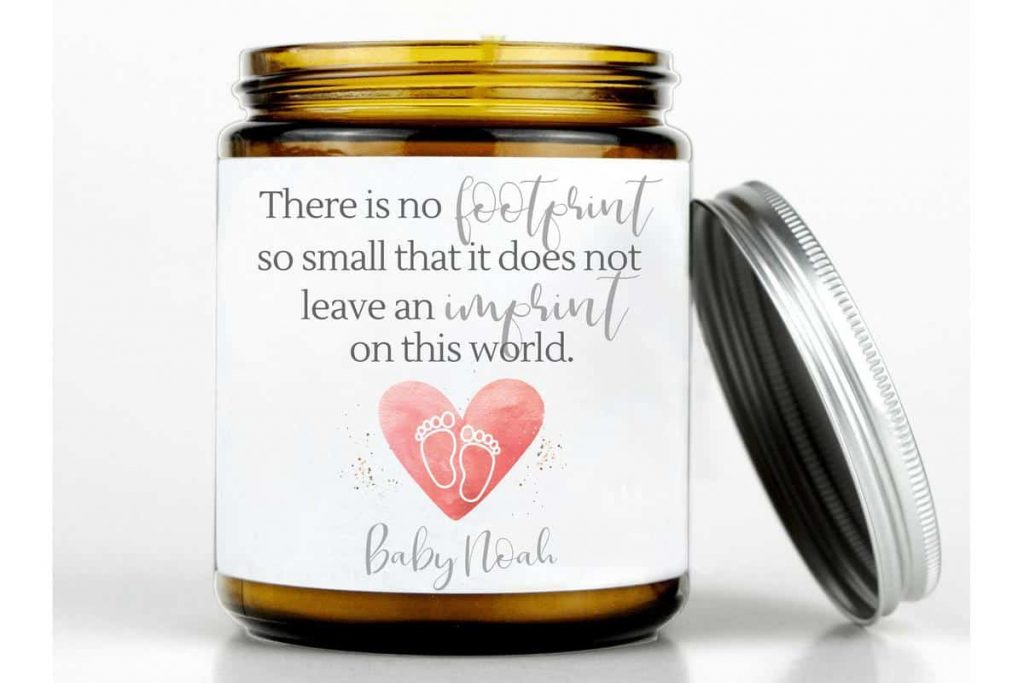
A gift like this candle tells your friend that their grief, and the child they were carrying, mattered, whether they lost the pregnancy at 5 weeks or 5 months.
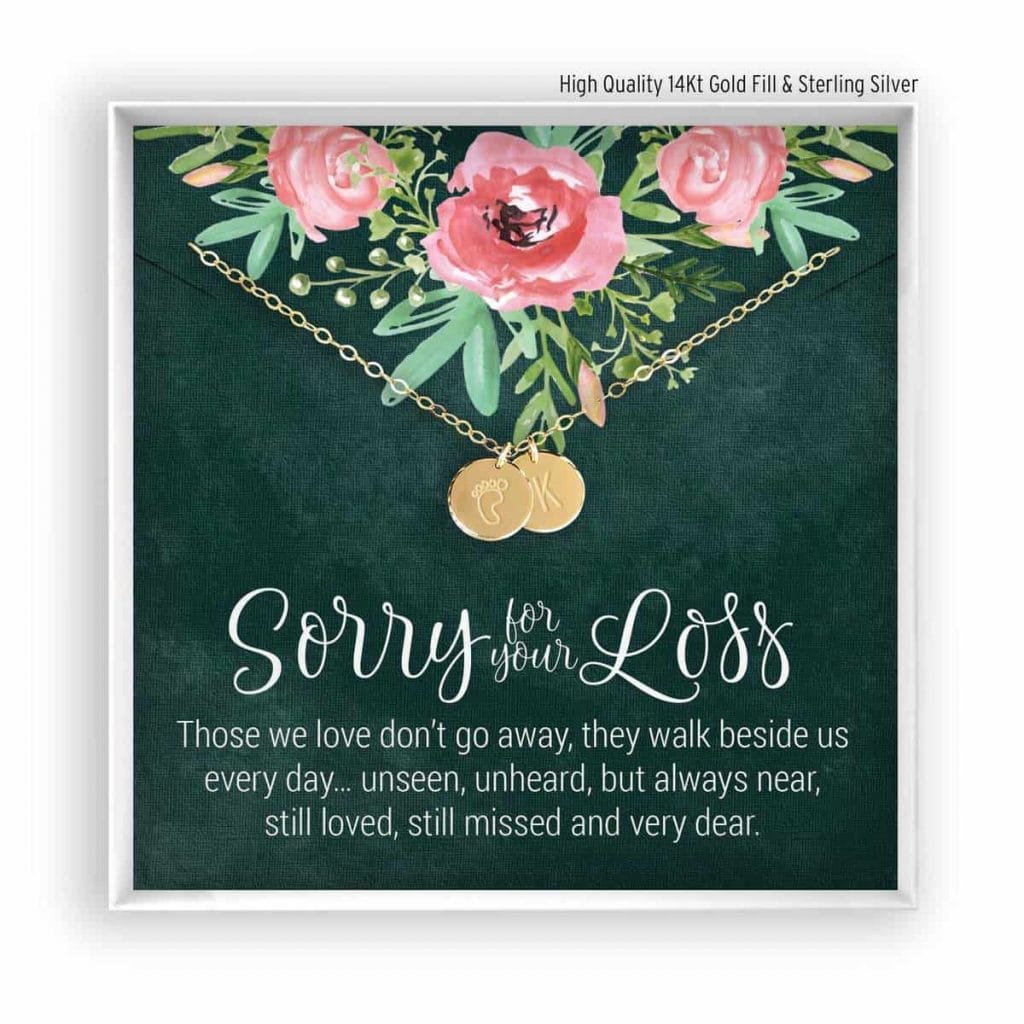
When you’re trying to help someone after a miscarriage, I don’t recommend using quite as many words as this packaging includes. BUT, the largest text is extremely validating, as it recognizes that a loss really occurred. In a way, it gives your friend permission to grieve.
Jewelry is also a great gift because it provides something tangible the griever can carry with them. Wearing a necklace with your baby’s initial, or last name initial, plus a footprint can allow a grieving mom to feel like her child is with her. It becomes a symbol for loss, which really helps with such an intangible experience as miscarriage.
Helping a Friend through Miscarriage with Validation and Affirmation
I’ve spent years of my life working through trauma. I’ve been poked, prodded, and anesthetized. I’ve not been anesthetized when I wish I had been. I’ve experienced physical and emotional pain and turmoil without even knowing what was causing the problem in the first place.
I needed people around me to stop trying to make it better.
Because here’s the thing with grief. You can’t make it better. What you can do is sit with someone, love on them, validate their emotions.
Just sit with me in how shitty it all is. That’s salve to the wound.
Let me tell you a story.
When I was experiencing recurrent miscarriage, I shared an office with a colleague-turned-close-friend, Rebekah.

Given our close quarters, she stayed more up-to-date on my situation than most people. I didn’t tell her I was pregnant the first time, but she probably figured it out when I kept complaining of heartburn and then refusing the meds she offered that weren’t on the approved list my OB had given me.
I told her when I miscarried, though (I did miss a week of work, after all). When I returned, I found kind notes she had left on my keyboard.
It’s okay to grieve. Do whatever works for you.
I’m here for you.
My first miscarriage required a D&C, but the second one happened on its own, slowly, over the span of about 2 weeks. I went back to work when I thought it was over and had taken some grieving time, but Rebekah witnessed me double over in pain and head to the restroom when it started happening again.
After that, there was a sort of inherent closeness.
Confronting Discomfort = Miscarriage Support
Soon, Rebekah told me that she was trying to conceive, and she wanted me to know so I’d have time to process that idea. Just in case it happened before I was able to carry successfully.
The day she told me she was expecting, I learned that I was “expecting” too. I use quotation marks because, for me, there was really no expectation left.
After my second loss, my OB was planning to send me to a specialist for recurrent miscarriage testing, so we were following my pregnancy hormone levels back down to zero so I could start testing.
I was excited for my recurrent pregnancy loss (RPL) workup. I needed to know I was doing something productive and positive.
I went in for a blood draw, and when the doctor called–I thought to tell me that I’d made it to zero and I could begin testing–I answered the phone with Rebekah in the office.
I assumed it was just a simple call that would be fine for someone to overhear.
That’s when my doctor said these terrifying words, knowing how I’d react:
Your hormone levels are increasing again. You need to come have more blood drawn to see how this new pregnancy is progressing. Come straight in; I’ve already talked to a specialist about the tests I can safely run while you’re pregnant, and about things we can do differently with our fingers crossed that we can save this one.
I freaked out, and I left work shaking. My doctor drew 20 vials of blood that day. Rebekah kept saying, “Mixup at the lab. That’s what we’re going to think until you tell me not to say it anymore. Mixup at the lab.”
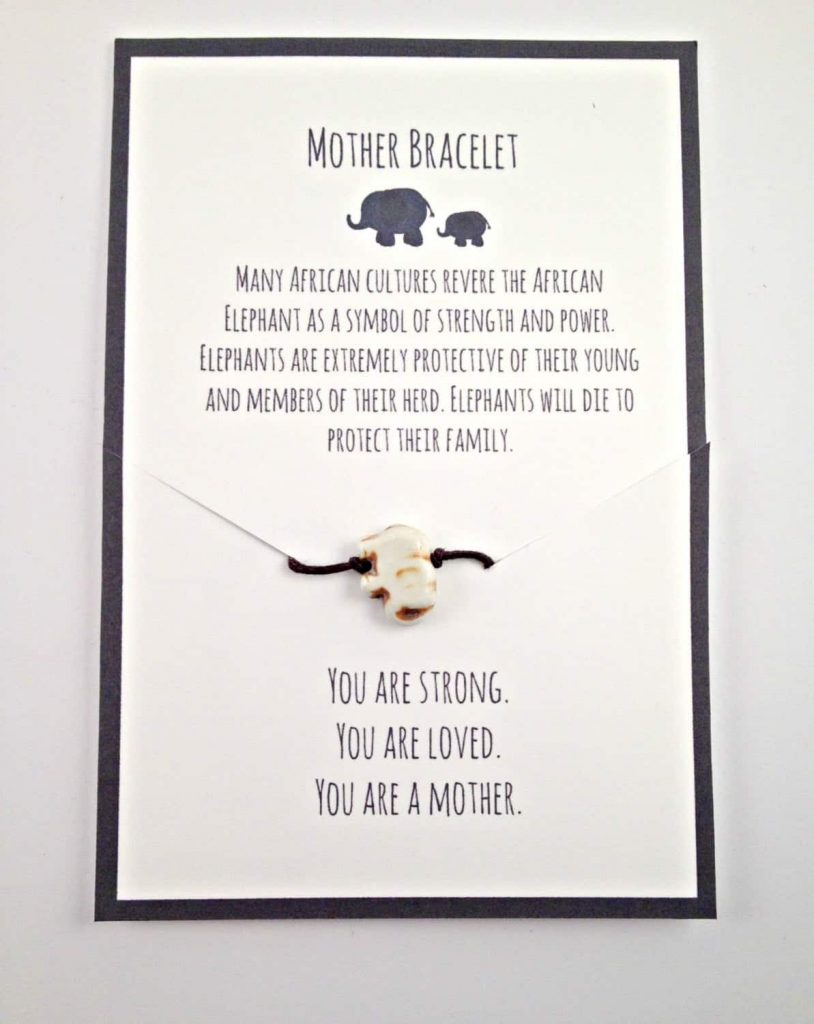
There Was No Mixup at the Lab
And we both knew it, but I found the humor, and her willingness to let me determine its terms, helpful.
What she was actually saying was, “I know you aren’t ready for this. I know you think you’ll lose this one too. Honestly, you probably will. And that sucks. So I’m going to try to lighten the anxiety while we wait to find out what’s happening. But it’s all on your terms, so if this method stops working, you just let me know.”
I understood her.
When I got to work the next day, there was a small gift on my desk. I thanked her for it, and she smiled and said, “You have no idea what it is, do you?”
“Not a clue,” I replied.
It was a nazar, an eye-shaped amulet given to her by a former Turkish colleague to protect her from evil.
She was passing it on to me.
If it ever breaks, it means it protected me from someone trying to curse me, and I must throw it into moving water.
My Pregnant Friend Was Supporting Me Through Recurrent Miscarriage
I can only imagine how anxious Rebekah must have been, newly pregnant for the first time and having watched me go through miscarriage hell over and over.
But she felt I needed protection, even if just a symbol of it that I didn’t understand, more than she did.
That’s when I knew that this woman had a level of emotional intelligence that was through the roof. This was a “safe friend.”
A few days later, I answered the doctor’s call, again in Rebekah’s presence. This time, I assumed it was bad news, but I wasn’t worried about what Rebekah overheard anymore.
The doctor told me that my hormone levels were stagnant. She feared I was experiencing an ectopic pregnancy. I should go to the ER immediately.
Rebekah offered to drive me to the emergency room, but I insisted that I was okay to drive myself home, where Husband was heading to take me to the hospital.
What Validating Grief Looks Like
Within a few short weeks, Rebekah saw a heartbeat on an ultrasound while I awaited an appointment with a specialist to begin recurrent miscarriage testing.
It was during this time when Rebekah walked into our office and asked a question that makes most people gasp in horror.
It was one of the best things anyone said during my entire recurrent miscarriage journey.
Is it okay if I ask you a sort of weird, maybe uncomfortable question?
Rebekah
Of course it was.
She described a tugging sensation she was feeling in her lower abdomen, and said,
You know the first trimester better than anybody. This feeling is normal, right?
Permission to gasp in horror if you want. Then read on to learn why you shouldn’t.
“It’s normal,” I replied. “You’re building up relaxin in your system, which will continue throughout your pregnancy to help your hips open for birthing.
But now, it just makes things loosen and sometimes stretch. Your organs start stretching and making space to move really early. That’s what you’re feeling.”
We both felt relief.

Validation = Support Through Miscarriage
When I tell this story, no one understands why I felt relief.
Listeners look at me in horror, unable to imagine that this audacious friend was willing to remind me of my own lost pregnancies by comparing them to her healthy one.
Here’s the thing. When I talked about miscarriage, many people invalidated the experience, as if they were trying to erase what I’d been through for the comfort of everyone involved.
They acted as if my pregnancies never occurred because recalling them was uncomfortable, and they didn’t want to “remind” me.
As a result, I was often treated as if I had never been pregnant, but early pregnancy was an experience that I actually know better than most.
Acknowledging My Experience Was Validating
In asking the question, “Is this feeling normal?” Rebekah was the first person to openly legitimize me as a mother. It’s like she was, in an even more tangible way, saying what the bracelet above says: “You are a mother.”
I wasn’t just her friend who kept miscarrying who would hopefully be a mother one day. No!
I was a mother of 3 children, some of whom I’d carried longer than others. And that experience gave me knowledge and wisdom that could help her in that moment.
She acknowledged that my pregnancies had been real and formative. I was relieved to feel so legitimized, so included in this mom club.
Acknowledging that Miscarrying Mothers are Still Mothers
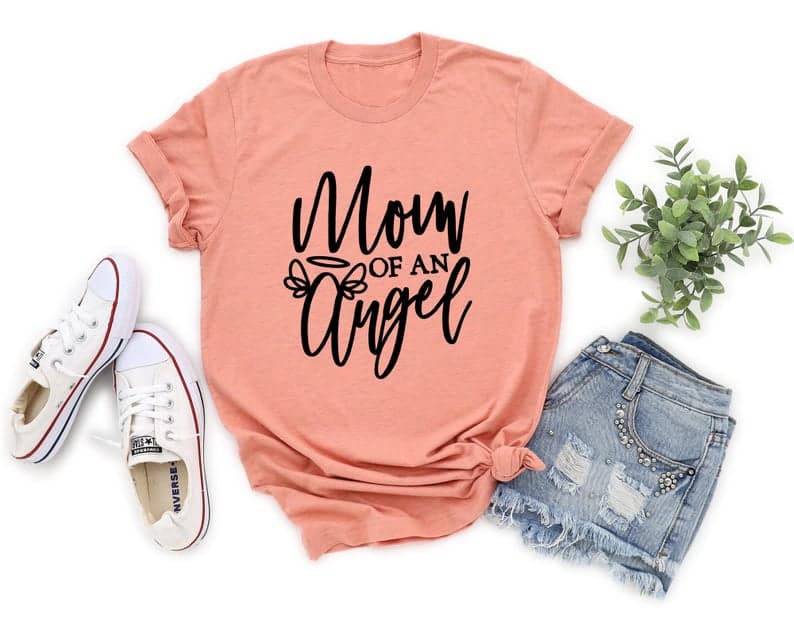
Her question may have been an overstep for some people who have experienced miscarriage, sure. But we had learned each other’s languages, and she knew it was okay.
She probably didn’t know it would be relieving, almost thrilling, and something that I’d continue to tell people about for years.
She also didn’t know that her pregnancy was a lot less hard on me than it would’ve been had she not been so willing to legitimize all of mine.
Yes, I watched her belly grow and thought about how similar my bump would’ve been had my second or third baby survived.
Yes, I gave her a gift card I’d bought at Kroger as a baby present because looking at baby items and registries was far more than I could handle. (She actually supported me through miscarriage so well that she asked if I wanted to be invited to her baby shower.
The Healing Power of Validation
I’ll admit it. The day Rebekah’s son was born, my empathy over her long labor was interrupted by thoughts like, “I could be having that with #3 right now too.”
Yes, I used to compare her son to the ages that my babies would be, if only they had been. That’s normal.
But I was also able to watch her belly grow, celebrate her son’s birth, and see him as a special creature whom I could love despite my own pain.
And if I’m being honest, I couldn’t do that with every baby I knew who was born during that time of my life.
I could do it with Rebekah because she validated my grief over and over again. Because she held my hand and wiped my tears and supported her friend through miscarriage.
This the power of validation. Of being willing to look someone in the eye and say, “My God, this sucks. I’ll walk through the fire with you. I won’t try to fix it because I know I can’t, so instead, I will walk.”
This is what we need to do for one another.
And this is why Rebekah’s and my babies, not quite a year apart in age, can play with each other and bring us both such joy.
Validation is the salve on the wound and one of the easiest ways we can support one another. Let’s practice it, please.
What did someone do to validate your grief when learning how to support someone after miscarriage? Tell us about it in the comments!
With our journal for the sisterhood of pregnancy loss, called Mourning Retreat, miscarrying mothers have the opportunity to work through their emotions and gain access to a private online community of women who have been in their shoes.
To purchase Mourning Retreat as a gift, click the photo below and click the “gift” icon next to “email address” during checkout. There are also gifting instructions in the FAQ section.
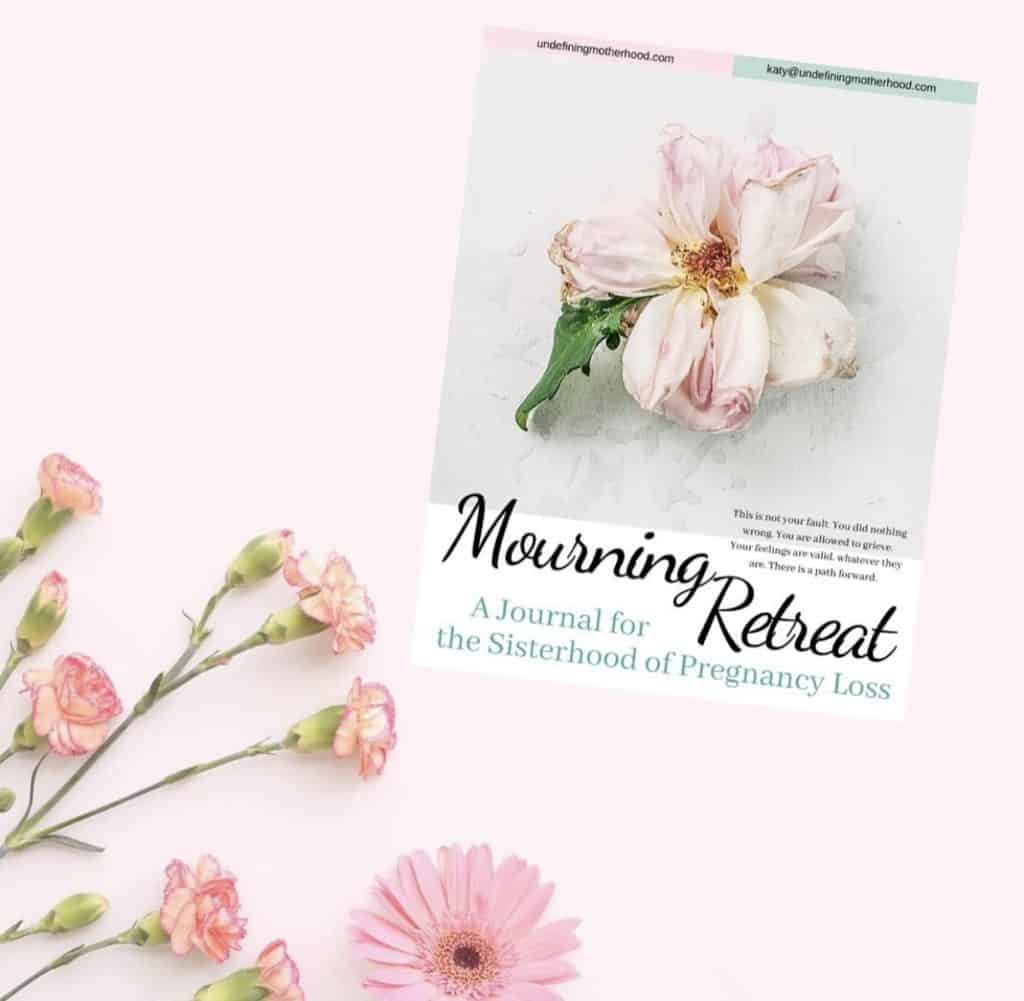


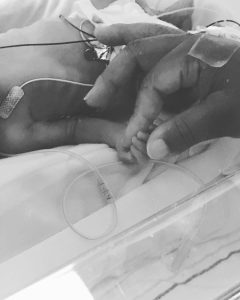
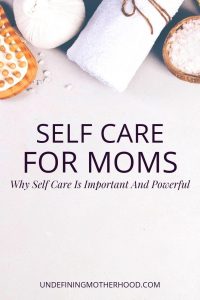




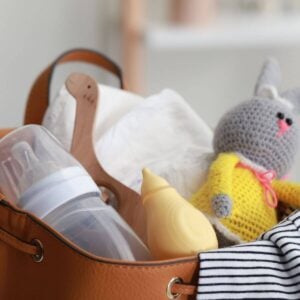
It is so interesting to read these posts from my perspective. It really was validation that you needed as part of the support that you got. That is not a common thought among those who try to offer that support.
That’s the purpose (and importance) of these posts. To build a toolbox full of knowledge about how we can help people that may not be what we think. And it’s not just useful to people on the other side of grief. I constantly find myself trying to remember what I needed when responding to people going through similar experiences. Even after 4 miscarriages, I’m never sure I’m doing or saying the right things. I’ll be glad to be able to come back to these posts for tools too.
I love this post so much! I love hearing about the strong women you encounter in your life.
When my father died, the worst thing anyone said to me was “It’s better for everyone that he’s gone.” Which may have been true, but never say that to someone who just lost their dad! And I remember my roommate left work to ride the train with me. To just be there to listen and help me pack and tell me that she was there for me.
It is surprising that the simplest thing, “This sucks. I’m here.” can cause the most discomfort sometimes. Helplessness is the worst feeling for me, so I get it. But being there isn’t being helpless. It’s being there! I’m glad you are able to see this and help articulate it so well. Thank you!
It’s unfathomable to me what people say at such times. I’m so sorry you had to hear that! I think learning to just be present and listen is so important. I constantly find myself trying to make things better for people, and then I remember that all I usually really want is a “This sucks. I’m sorry. I’m here.”
This is so true! I feso like it wouod change and empower so many if the world viewed this in THIS way!!
My own mother had three miscarriages and buried a three and a half year old son, before I turned 13. I’m the oldest of nine children, five living. I will always count my siblings, even when my ex-husband nay-sayed me doing that ‘because they were never born, they technically didn’t exist, and you shouldn’t count them; it confuses people.’ I wanted to punch him right in the face…..
I never did! I should have but never did. Then when I miscarried our first child, and he never once validated it being a child, but said I was making it up just to garnish sympathy, like my mother did her miscarriages. Any respect I had for my ex-husband as a human being vanished…it drove us apart and then the way he handled our pregnancy with my now two year old, finished dividing us. I felt ashamed, even for remembering my baby I never got to see or hold. ????????????
I’m re-married and my husband views children as just as much of a precious gift as I do! He wants to get/make something to place in our home to memorialize my angel child, he understands and completely supports/validates me counting my babies as four, my idk boy or girl angel baby would be four years old now, my firstborn daughter is two years old (my rainbow ???? baby ????????) and my twins (I just recently found out people call them pot of gold babies ???? ????????????????????).
I felt like my mother with all of her loss and being a midwife, I&d nurse for 30 years, lactation consultant, doula, etc. etc. would be the one person to understand my need for validation and support, however to my dismay and sheer shock, she treats me the same as people treated her and disregards the fact that I’ve buried a child also! Acts like she’s the only one to have experienced that out of either of us….it broke me…….to realize that my one huge support does the same as everyone else. Treats me as though it never happened, even though I cramped when nursing right after delivering my daughter which she and my midwife agreed pointed to me having a prior pregnancy. (Even though I haven’t found literature to support this.) That it has so irreparably damaged our relationship as mother and daughter. I want to fix it, I just don’t know how to even begin to….
????????
To all you mother’s reading this; I see you, feel your pain, message me if you need an understanding ear, and friendly e-shoulder.
FB: Jess SkyBlu
Oh, Jess, I’m so sorry, and I so feel you. I feel like there’s a major generational gap in dealing with miscarriage; it’s a subject people don’t know how to deal with now, but it was so much more silent/taboo a subject when our parents were having children that they really don’t know how to talk about it. I’ve also found that people who lose living children (burying a 3.5 year old – my heart breaks at the idea) tend to put less weight into miscarriages, even if they had them, because losing the living child was so much harder. And it is SO much harder. But also, we must not compare our grief, and we must support one another. I was the special guest on Dr. Christina Hibbert’s Motherhood 2.0 podcast last week, and I think you might find that episode helpful, but emotionally, and potentially for thinking through ideas of how to create language to begin repairing your relationship with your own mom. https://itunes.apple.com/us/podcast/coping-miscarriage-perinatal-loss-what-to-do-say-not/id1133325763?i=1000422582706&mt=2&fbclid=IwAR1MD32DnM8O6SpBgWMdpUyEaPiPEpAhEjMCYRVoI-azj7fmsrcq1beYpJU. Or https://soundcloud.com/christina-hibbert-motherhood-radio/coping-with-miscarriage-perinatal-loss-what-to-do-say-not-to-say?fbclid=IwAR3FIt0AQO-Ndq-VnpeAg5H-hvQ0B0voDpXphEYmE5NdYn9z14ugK7wdafM.
Also, can I just say how glad I am that you are NOT with that ex anymore? THANK GOD!
This article is exactly what I needed. Thank you! I crave validation for my pregnancy losses and want to be better at giving validation to others.